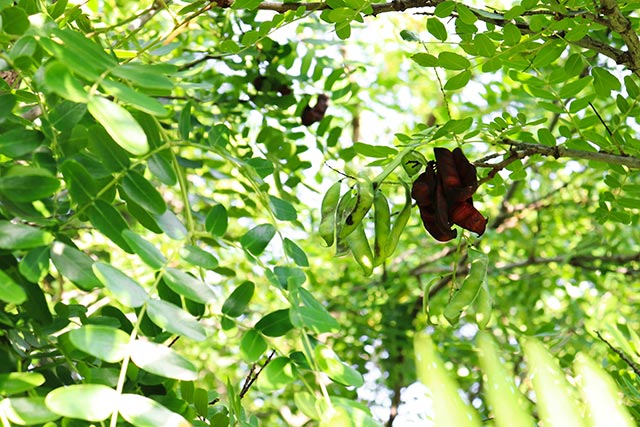Anticancer activity of doxorubicin can be enhanced with Caesalpinia spinosa
06/12/2019 / By Janine Acero

Researchers from Colombia evaluated extracts from Caesalpinia spinosa, commonly known as spiny holdback tree, for their antitumor activities and to see if the plant can be a possible adjuvant to conventional chemotherapy medicine. Their findings were published in The American Journal of Chinese Medicine.
- Cancer stem cells (CSC) are the primary cell type responsible for metastasis and relapse. ABC-transporters are integral membrane proteins involved in the translocation of substrates across membranes protecting CSC from chemotherapeutic agents, such as doxorubicin.
- Extract derived from Caesalpinia spinosa (P2Et) has been shown to reduce lung and spleen metastasis in mice that have been transplanted with breast cancer cells. This suggests that P2Et has significant antitumor activity against CSC.
- P2Et was thoroughly characterized by HPLC/MS. The researchers evaluated the cytotoxicity of P2Et using an MTT assay in human and murine cell lines with different profiles of resistance, by Pgp overexpression or by enrichment in cancer stem cells.
- They evaluated the synergistic effect of P2Et with doxorubicin in vitro using several cell lines and in vivo using mice transplanted with TS/A cells – a highly resistant cell line – and enriched in CD44+CD24low/?CSC.
- The researchers found 13 gallotannins in the chromatographic fingerprint of P2Et extract. They also reported that P2Et was cytotoxic to cells regardless of their resistant phenotype.
- P2Et exhibited complementary activities, such as drug efflux reversion and antioxidant activity. P2Et also had a synergistic effect with doxorubicin in resistant cell lines.
- In vivo, P2Et increased mice survival in a TS/A breast cancer model associated with augmentation of calreticulin protein expression.
Based on these results, the researchers concluded that P2Et could be used as an adjuvant to conventional chemotherapy to treat tumors with a multi-drug resistant (MDR) phenotype or with high frequency of CSC.
Journal Reference:
Sandoval TA, Uruena CP, Llano M, Gomez-Cadena A, Hernandez JF, Sequeda LG, Loaiza AE, Barreto A, Li S, Fiorentino S. STANDARDIZED EXTRACT FROM CAESALPINIA SPINOSA IS CYTOTOXIC OVER CANCER STEM CELLS AND ENHANCE ANTICANCER ACTIVITY OF DOXORUBICIN. The American Journal of Chinese Medicine. 2016;44(08):1693–1717. DOI: 10.1142/s0192415x16500956
Submit a correction >>
Tagged Under:
adjuvant, alternative medicine, anticancer, antitumor, Caesalpinia spinosa, cancer cures, complementary medicine, conventional medicine, doxorubicin, integrative medicine, medicinal plants, multi-drug resistant cancer cells, natural cures, natural medicine, prevention, research, spiny holdback tree
This article may contain statements that reflect the opinion of the author




















